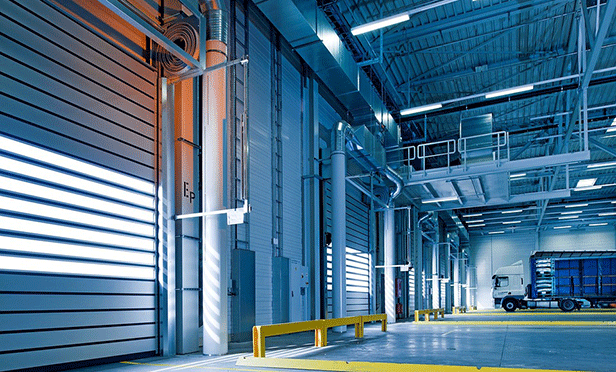For the most part, the commercial real estate industry is sanguine about the cycle’s end, expecting a soft landing based on the currently strong fundamentals. But could we all be suffering from complacency risk?
That is a theory put forward by The Counselors of Real Estate, which, based on a recent survey, identified the current and emerging issues expected to have the most significant impact on real estate in 2019 and 2020.
“Never Saw It Coming”
It, too, acknowledged that it may seem peculiar to cite “complacency” as a particular risk in mid-2019 as most macroeconomic indicators seem to point to economic conditions that can be fairly described as ‘robust,’ if not ‘the best we have ever seen,’ it said.
Nevertheless, the Counselors of Real Estate said, the ebullience of the economic psychology may be causing us to ignore the nature of cycles—that they peak just as a downturn is nigh. “There is a tendency to forget in good times, as well as a false expectation that the shape of a previous downturn will help predict the conditions of the next recession. Extrapolating recent trends indefinitely into the future while ignoring signs of the limits to growth sets us up for harsh surprises.” Even Alan Greenspan, as he wrote about the crisis of a decade ago, noted that economists including himself “never saw it coming.”
Past Patterns
But enough of the respondents identified end of the cycle complacency as a risk, that the Counselors included it on its list. They wrote:
“Most CREs have weathered four or more recessions over the course of their careers and have seen (especially in the collapse of values 1989-1994 and again 2008-2011) how economic exuberance can deflate unexpectedly. Or how, more recently, signs of fragility emerged during the December 2018-January 2019 government shutdown. Even the solid numbers generated by GDP last year and in 2019’s Q1 failed to protect the 800,000 Federal employees from needing to resort to food banks once a couple of paychecks were missed.” The lesson these people concluded: while the edifice of the economy still seems impressive, its foundations may be shakier than generally presumed.”
Comments by these respondents highlighted their sensitivity to past patterns, and to the unusual conditions on the economic and industry horizon for 2019/2020. “Nothing,” one said, “will affect real estate more than the end of the cycle, which is fast approaching.” From another: “Real estate demand is derived from the economy, and there are many signs the expansion is coming to an end, probably by 2020.”
Watching the property markets specifically, a third observed, “The extended upcycle has encouraged increased speculative development in non-traditional product and even in multifamily in some markets. It may prove painful for late-stage projects.” Another warned, “Lessons never seem to be learned. Market participants are once again lacking discipline.”
There is also the potential for a truly disruptive surprise for those who believe that real estate “knows how to deal with cycles and can count on a return to growth after a short downturn.” Neither the capital markets generally nor the real estate markets in particular seem prepared for a US economy that is likely to grow in the 2020s at a rate of only 40% to 50% of its 2012-2019 pace in terms of GDP and jobs increases, the Counselors said. “To the extent that both equities and real estate values are anticipating a ‘normal’ upturn after a recession, the readjustment of prices to expectations of much slower growth will make this “end of cycle” event even more painful, puncturing the complacency still widely felt in early 2019.
Questioning Prices
In a separate report, we are seeing similar dynamics unfold. The recently-released Real Estate Roundtable Q3 Sentiment Index indicated that all was fine in the industry. “Although there is political uncertainty and the economic recovery is historical in length, commercial real estate market dynamics remain sound, with balanced supply and demand in most markets, and debt and equity readily available, particularly for high grade investments,” CEO Jeffrey DeBoer said in prepared remarks.
And while the bulk of the report was positive, it was peppered with hints of anxiety about the cycle’s end. For instance, while 60% of respondents believe real estate asset values will be the same one year from now, many question whether the real estate cycle may be nearing an end and prices could decline in the near future. Respondents also said they feel a change in the market is imminent, but are unable to identify a definitive potential cause for a decline as they recognize economic fundamentals appear strong. Nearly half of respondents suggested market conditions one year from now would be similar to the prevailing conditions today.
Want to continue reading?
Become a Free ALM Digital Reader.
Once you are an ALM Digital Member, you’ll receive:
- Breaking commercial real estate news and analysis, on-site and via our newsletters and custom alerts
- Educational webcasts, white papers, and ebooks from industry thought leaders
- Critical coverage of the property casualty insurance and financial advisory markets on our other ALM sites, PropertyCasualty360 and ThinkAdvisor
Already have an account? Sign In Now
*May exclude premium content© 2025 ALM Global, LLC, All Rights Reserved. Request academic re-use from www.copyright.com. All other uses, submit a request to [email protected]. For more information visit Asset & Logo Licensing.









